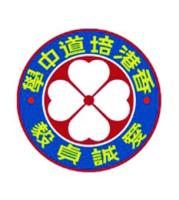| Language Policy |
To strengthen bilingual education at all levels, language classes are split into groups according to student abilities for adopting a variety of teaching strategies. At the junior level, a language arts programme has been implemented. Native English speakers are hired to teach students drama and poetry appreciation, while our EDB NET teacher teaches public speaking. We provide an English learning environment in assemblies, after school and in many activities for students to use English. |
| Learning and Teaching Strategies |
We believe that students are willing to learn. If they are provided a complete opportunity to learn, they will excel. Now we focus our attention on developing learning and teaching strategies that are compatible with the curriculum reform, and will take a step further in enhancing the academic achievement of the students by developing them as responsible learners and promoting a learning culture in school. Another focus is to further raise the level of English proficiency through extended learning activities and the change of the medium of instruction into English in some academic subjects. The "Student Learning Development Committee" promotes forums, school exchanges, peer learning, etc. |
| School-based curriculum |
1. Electives: 2X, 3X and 4X. There are different combinations of 3X for S.4 students to choose from.<br> 2. Curriculum highlights: <br> (1) English Language Arts Programme (S.1-S.3)<br> (2) STEM curriculum and STREAM Project Learning (S.1-S.2)<br> (3) EXCEL Programme (S.2-S.3)<br> (4) GEMS Programme (S.1-S.3) |
| Approach to Catering for Learner Diversity |
Teachers share the responsibility to cater for learners’ diversity. Under the same curriculum, learning activities are arranged in accordance with students’ abilities to facilitate their learning. Our "GEMS Programme" and "EXCEL Programme" in junior forms give special opportunities to elites. As for senior forms, enhancement and remedial classes of all subjects are provided. Besides, individual tutorials are provided for the students who have special learning needs. IEPs are used to cater for those students in need of individual intensive support. |
| Approach to Integrated Education |
We are committed to employing a whole school approach to build an inclusive culture in school. By using the Learning Support Grants, we provide appropriate and diversified support services:<br>1. Academic support: We have been providing after-school individual homework tutorials for junior form SEN students and subject-based tutorials for senior form SEN students. Differentiated learning materials and examination accommodations are provided to students who have special educational needs. <br><br>2. Inclusive culture: To further strengthen an inclusive culture, we run a regular junior form inclusive education programme to educate students to accept and appreciate uniqueness and individual differences.<br><br>3. Learning Support Grant: We hire professional services such as social skills training, attention training programs, speech therapy, etc. to enhance students’ interpersonal social skills and broaden their horizons.<br> <br>4. Home-school cooperation: We strongly value the importance of home-school cooperation of SEN students. Communication is the key to success. Parents are invited to discuss and support the needs of SEN students so that students can grow holistically. <br><br>To ensure the quality of Student Support Team’s programmes, the process of PIE, planning, implementation and evaluation is employed to regularly review the effectiveness of the support services. |
| Education Support for Non-Chinese Speaking (NCS) Students |
|
| Home-School Co-operation |
The Parent-Teacher Association has been established since 1994. Through comprehensive communication channels including bi-weekly parents’ letters, the school has a good relationship with the parents. <br><br>Apart from encouraging parents to participate in school functions and act as parent volunteers, the Association jointly organizes parenting seminars and parent-child activities so that parents can understand the needs of their daughters at different developmental stages. <br><br>Besides, the Association also assists the school with a variety of school activities that enrich students’ learning experiences, namely a book-sharing session, Arts in Action and post-exam activities. |
| School Ethos |
A positive school ethos contributes to a harmonious yet disciplined and orderly school life. We not only believe that a close teacher-student relationship facilitates learning and teaching, peers also help and encourage each other through schemes like the Academic Prefect, "Alumni Support", etc. |
| School Development Plan |
3 major concerns from 2022 to 2025:<br>1. Strengthening the team through leveraging internal and external collaboration, with a focus on the seven learning goals of students.<br>2. Improving teaching efficiency and boosting students' confidence in learning; cultivating a vibrant Chinese cultural atmosphere and equipping students for the future.<br>3. Enhancing the cultivation of positive values among students.<br> |
| Teacher Professional Training and Development |
The school is a place for teachers' and students' growth. Teachers pursue professional development through a wide range of duties, school-based curriculum development and reforms. The school also arranges for teachers to take part in the EDB curriculum development. Besides study tours, we invite professionals to speak and each year we have professional exchange sessions for subject teachers. In recent years, we have focused on "lesson studies" to enhance teaching effectiveness. The secondment of teachers to the Education Bureau is also encouraged to broaden teachers' experience. Annual staff development activities follow the school theme. |
| Life-wide Learning |
1. The weekly life-wide learning activity sessions broaden students’ horizons through various activities including geography field trips, aesthetic and physical activities, moral activities, academic competitions and site visits for different forms.<br><br>2. An array of after-school extra-curricular activities like academic clubs, arts education activities, choirs, acapella choirs, school team training, uniform groups, social service groups and interest groups are provided to enrich the school life of students.<br><br>3. Students are encouraged to establish clubs and organized post-exam sales activities.<br><br>4. Form-based extended learning days are organized for achieving students’ whole-person development.<br><br>5. Regular whole-school activities, such as house activity days, Chinese New Year activities, and spring-cleaning activities are organized to enhance students’ sense of responsibility and belonging to the school.<br><br>6. Co-curricular activities are integrated and coordinated with the aim of providing students with ample learning activities to enrich the campus life of students. |
